A Russian Establishment View of the Ukraine War
Presentation by RAFAEL POCH and article by SERGUÉI KARAGANOV
To understand the war in Ukraine it is essential to know the points of view of all the warring parties. We understand that of Ukrainian nationalism defending its country against the imperial aggression of its neighbor and at the same time imposing its identity on the less nationalist regions accused of "collaborationism" with the invader. We also understand the interests and role of the United States in this "proxy war", in which it tries to defeat in an exemplary manner the Russian military challenge that began in 2014 with the annexation of Crimea. Important strategists and officials in Washington have explained it to us very clearly and admit that it is a "warm-up to what is to come" against China (Charles Richard, head of the Stratcom and one of the top military leaders in the United States). But we understand much less of Russia's motives.
This article by Sergei Karaganov, Honorary Chairman of the Russian Council for Foreign and Defense Policy, presents a point of view of the establishment Russian on the conflict, banned from our media due to censorship and the unilateral focus on the Atlanticist theses.
Karaganov was a typical “Westernist” during the Yeltsin era, when the great privatization embezzlement took place that established the pillage of the national patrimony. At that time Russia's nouveau riche westernist elite and liberal intelligentsia celebrated their rise to “civilization” and dreamed of aligning themselves with their Western partners. The “ideological” obstacles of the Cold War were gone and it was taken for granted that Russia would automatically be given a place in the new scenario of global capitalism.
Today Karaganov expresses the frustrations and evolution of the establishment Russian for not having been accepted on an equal footing by their Western capitalist counterparts. The irritation grew over the years as the geopolitical roll of the United States in Europe, via NATO, progressed, complicating and poisoning any attempt to integrate a European Union in geopolitical inopia with its main Russian energy partner and its first commercial partner. Chinese, until giving rise to the turn in the priorities of the Russian elite that we are witnessing today.
What did it mean to be accepted “on an equal footing”? Fundamentally, the West recognized the sovereignty and primacy of the Russian elite in the plunder of the national patrimony and the rich resources in its own country, including in this recognition that of Russian interests in its geographical environment, a kind of "Monroe Doctrine" of the post-Soviet space even if it was in conditions of condominium with the West, Turkey and China, as has been the case in Central Asia and Transcaucasia.
In Moscow, it took them years to understand the seriousness of the Western globalist project that contemplated a subaltern Russia with a comprador national elite subordinated to the large Western transnationals and to which it is not intended to recognize "sovereignties" or private preserves derived from the traditional state control of business and embezzlement in the largest country in the world. Westerners wanted unrestricted free access for their multinationals to Eurasian resources, and, of course, they recognized no political, economic or military "zones of influence" beyond their own hegemonic domain. Moscow's initial collaboration was seen as weakness and Putin's repeated complaints ignored for years. All of this is what, from my point of view, is contained in Karaganov's reproach to the West for not having been able to “agree with Russia and China on the terms of the new world”.
Karaganov expresses the change in mood and mentality of the Russian elite in the heat of the harsh realities and lessons learned, which now lead to the disaster of war. He subscribes to an anti-Western discourse denouncing "globalist imperialism" in the world, and defends the need for a purge of "Westernist and comprador elements" in Russia itself, which seems to herald fundamental changes in that country.
Rafael Poch
WE ARE WATCHING THE RISE OF A NEW WORLD
Sergei Karaganov
The crisis did not begin in 2022, but in the mid-90s, just like the Second World War, which really began with the Peace of Versailles, which was unfair and 100% laid the foundation for it.
25-27 years ago, the West refused to make a just peace with Russia. And, as it seemed to many at the time, he created a new system for his domination based on "rules". Others later referred to it as global liberal imperialism. But the system was built on sand. A World War III mine was placed in it that sooner or later could explode. Veterans like me often share memories, often made up. In my case I can document that since 1996/1997 I was already writing and saying that a world based on the expansion of NATO and Western domination leads to war.
The West's hegemony began to crumble in 1999 when, in a frenzy of impunity, it raped Yugoslavia. The collapse worsened when, euphoric, he entered Afghanistan, then Iraq and lost, devaluing his then military superiority and moral leadership. At the same time, two even more important processes were taking place. Convinced after Yugoslavia, Afghanistan, Iraq and the United States' withdrawal from the ABM Treaty, Russia - that it was impossible to build a just and lasting peace with the West - began to restore its military might. And so once again, as it had done in the 60s and 80s, it began to tear down the foundations of Western domination in the world economy, politics and culture, which was based on military superiority. This rule lasted for five hundred years and began to crumble in the 1960s. In the 1990s, due to the collapse of the USSR, it seemed to have returned, but now Russia has started to tear down those foundations again.
At the same time, the West let China's rise slip by. At the same time, he made an even more surprising mistake. In the late 2000s, the West began to rein in China and Russia at the same time, pushing them towards a common military-political bloc that would not conflict with their core interests.
The manifestation of the powerful collapse of the West was the 2008 crisis, which had the aforementioned processes as a backdrop and undermined confidence in its moral, economic and intellectual leadership. Since the late 2000s, the West began to unleash the Cold War. But there was still a window of opportunity to agree with Russia and China on the terms of the new world. It existed sometime between 2008 and 2013. This window has not been used. Since 2014, the West intensified its active policy of containment of China and Russia, including a coup in kyiv to prepare shock troops and try to undermine Russia to regain hegemony.
The West, losing military, political and moral ground, including its moral core (recall Europe's rejection of Christianity as early as 2002), went into a hysterical counterattack. The war became inevitable, the question was where and when.
At the same time, the global problems facing humanity - climate, energy, food and water scarcity, the explosive growth of inequality within the West itself, and the erosion of the middle class - have not been resolved. , but they got worse. Its non-resolution required delaying maneuvers. That was a powerful factor leading to the war.
For two years, Covid was used as a substitute for war, but once its effect had worn off, a clash here or there became inevitable. Aware of this, Russia decided to attack first.
This war has several objectives: to prevent the West from creating an offensive military bridgehead on Russia's borders, which was rapidly being created, and to prepare Russia for a long-term existence in a world of conflict and rapid change, which requires a different model of society and economy: a model of mobilization.
The next goal is to purge the Russian elite of pro-Western and comprador elements. But perhaps the main content of this war or operation in terms of world history, not just Russian history, is the struggle for the final liberation of the world from five hundred years of Western yoke, which suppressed countries and civilizations, imposing conditions on them. unequal interaction. First simply by looting them, through colonialism, then neocolonialism, and then through the globalist imperialism of the last thirty years.
The war in Ukraine, like many events of the last decade, is not only and not so much about the collapse of the old world, but also about the creation of a new world, freer, fairer, more plural and politically and culturally polychrome. .
The overall meaning of the struggle in Ukraine is the return of freedom, dignity and autonomy to non-Westerners (we propose to call them by another name: the World Majority, which was previously repressed and stolen and culturally humiliated). And, of course, a fair share of the world's wealth.
Russia cannot stop winning this war, although it will be difficult. Many of us had not counted on such a high willingness of the West to fight militarily, nor on such a high willingness of a part of the Ukrainians, turned into something similar to the German Nazis faced against the USSR in the past, for fighting desperately .
Probably, given the general trends of the world and the global balance of power, we should have struck earlier. But I don't know the level of preparation of our Armed Forces. Although I think that in 2014 we should have acted more decisively, giving up hope of an agreement.
We live in a dangerous period, on the verge of a full-blown third world war that could end the existence of humanity. But if Russia wins, which is more than likely, and the conflict falls short of all-out nuclear war, we should not regard the next few decades as a time of dangerous chaos (as most in the West say). We have been living in these conditions for too long.
The old system of institutions and regimes has already collapsed (free trade, respect for private property), institutions like the WTO, the World Bank or the IMF, the OSCE I'm afraid and the EU, are reaching their last years. New institutions begin to emerge to which the future belongs. They are the Shanghai Cooperation Organization, ASEAN+, the Organization of African Unity and the Regional Comprehensive Economic Partnership (RCEP). The Asian Development Bank already lends much more money than the World Bank.
Not all the new institutions will survive, let's hope some of the old ones will survive, especially in the UN system, which is in dire need of reform, mainly for the representation of the World Majority, and not the West, in the secretariat. The main thing is not to allow the losing West to slow down history or derail it with a world war.
Not only the countries of the World Majority, but also the Western countries can live quite happily in this world, in which the latter have invested many of their scholars, writers – Cervantes, Shakespeare, Stendhal, Hemingway, the great Russians. The West will simply miss the opportunity to plunder the rest of the world, it will have to shrink a bit. Live within your means.
I fear that this new world that is now taking shape is believed to be beyond my intellectual or physical life. But my young colleagues and surely their children will see that world. But you have to fight for this beautiful world, first of all avoiding a third world war, because of the West's revenge attempt. It was in Europe that the first two world wars broke out. Russia is now fighting, among other things, so that the necessary conditions for a third party do not exist. But the conflicts will occur at a time of rapid change. Thus, the struggle for peace should be one of the main themes of our intellectual community and the world in general, perhaps also the focus of the Valdai Club.
Sergei Karaganov's article was published in the international relations analysis magazine Russia in Global Affairs.

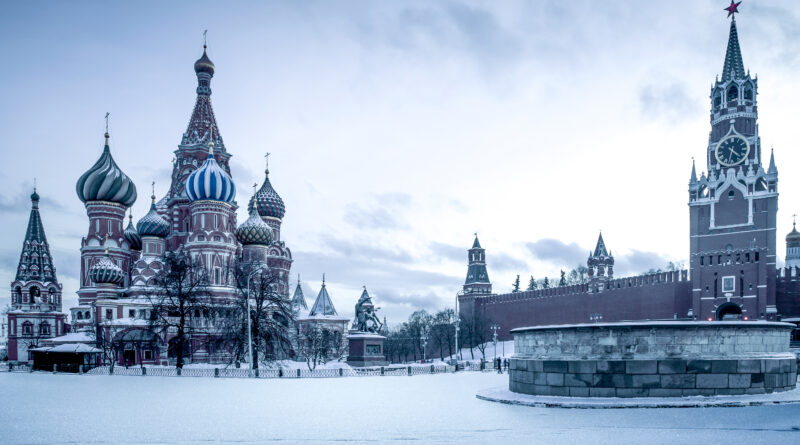
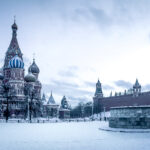
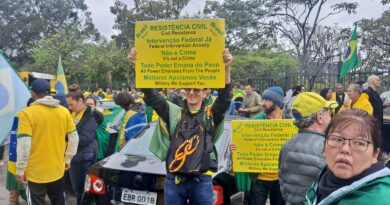


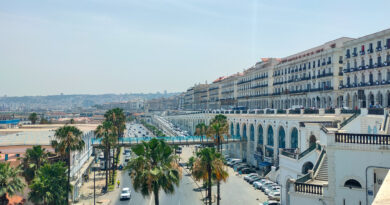
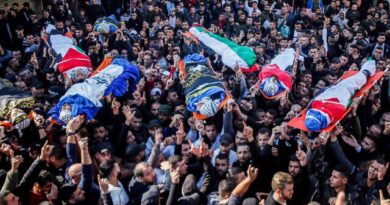
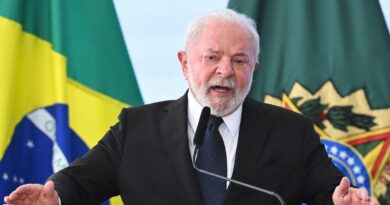

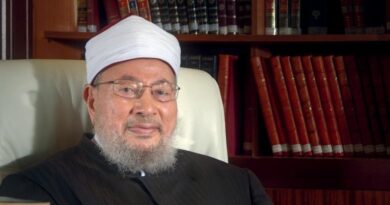
Pingback: A Russian Establishment Point of View on the Ukraine War – globalter – Co-Surfing | blogosphere